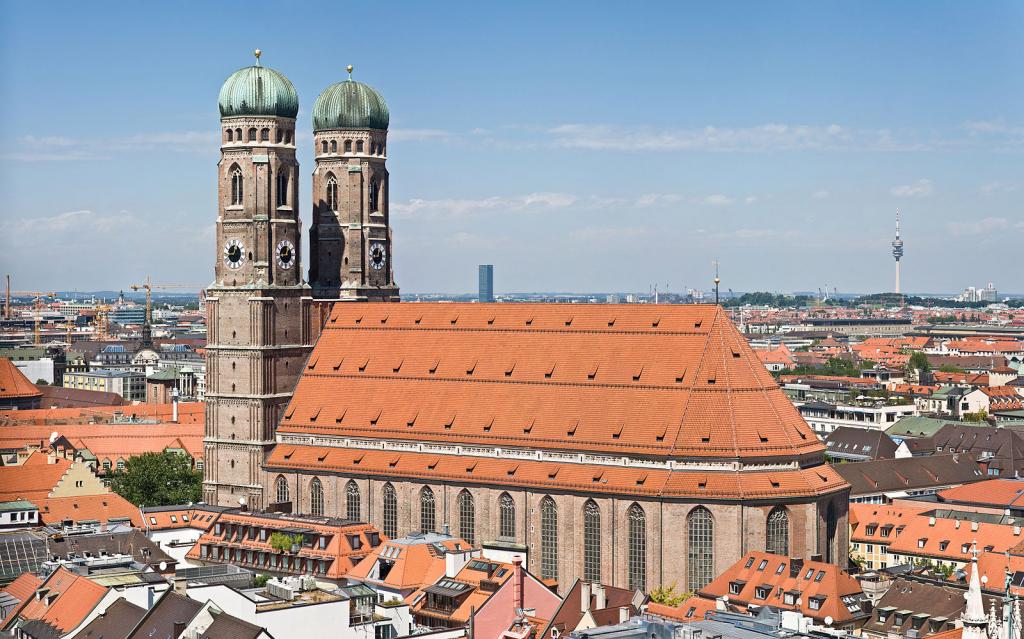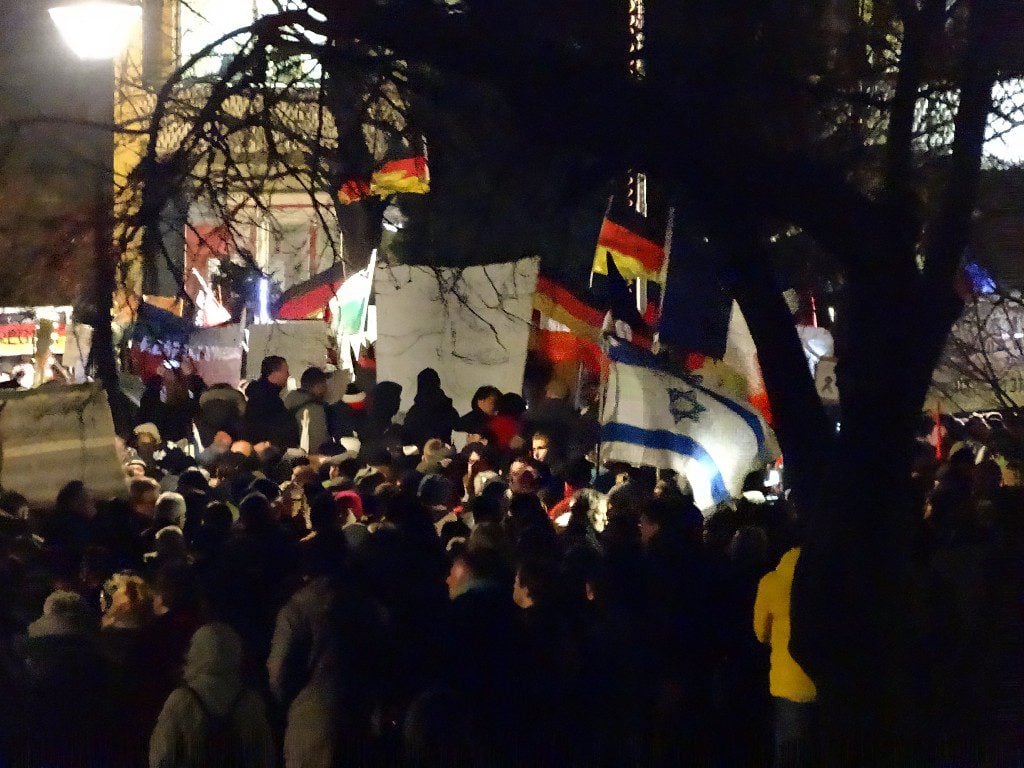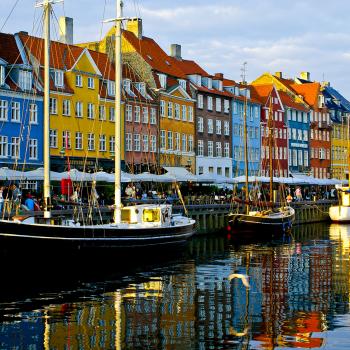First, the updates:
Despite the seeming impossibility of the task, the Cologne police have had more success in identifying attackers than at least I had expected would be the case. They’ve got a list of 31 suspects so far. Countries of origin, according to Der Spiegel:
- Algerien (9)
- Marokko (8)
- Iran (5)
- Syrien (4)
- Deutschland (2)
- Irak (1)
- Serbien (1)
- USA (1)
(The U.S.? A true American tourist, or someone with dual citizenship?)
It seems to be the case that these “sex-mobs” (as they seem to now be labelled even in German) were coordinated (this Spiegel article speaks of a three-digit number of men having planned, well, something — the article is vague as to whether the police don’t know or are unwilling to say more. But these attacks follow the same pattern and method as in Tahir Square in Cairo, for example.
A recent article in The Guardian describes coordination, based on an eyewitness account:
“I watched for some time as three men who were smartly dressed gave out instructions. One time a group of three or four males would come up to them, be given instructions and sent away into the crowd. Then another group of four or five would come up, and they’d gesticulate in various directions and send them off again.”
According to Deutsche Welle (in English), a total of 379 women have now come forward to report attacks, 40% of which involved sexual crimes. (UPDATE: as of Der Spiegel’s Sunday reporting, it’s now 516.) And it’s not just Cologne. Hamburg’s count is now up to 108. Instances were also reported in Dortmund and Dusseldorf; in the former city only two complaints have been reported so far, but police presume there are more and are asking women to come forward; in the latter city, there are 11 cases so far — in both cities the attacks were of the same “sex-mob” nature. Cases have been reported in Berlin as well, though only of two attacks, in each case with a single perpetrator, each of whom was a registered refugee, one from Iraq and one from Pakistan, not mob attacks.
Perhaps the most extensive description of the situation I’ve seen so far is an English-language article in Der Spiegel, “Chaos and Violence: How New Year’s Eve in Cologne Has Changed Germany“, which places the attacks in Cologne in the context of ongoing crime in the area:
The search for the perpetrators initially led the Cologne investigators to a criminal milieu, one that has plagued Cologne for years, especially in nightlife districts or around the train station. It’s typically groups of young pickpockets who use perfidious tricks to snatch wallets, phones and other valuables off unsuspecting pedestrians. The perpetrators dance up to their victims in a pretend celebratory mood, rub up against them and rob them. Those who try to defend themselves are insulted, threatened or even hurt.
In Cologne alone, more than 11,000 people have been robbed in this way in the last three years. According to police, all of the perpetrators have been male and in the majority of cases, they have come from North African countries such as Morocco and Algeria. The authorities are also investigating groups of men from central Africa and Kosovo. One person involved in these investigations has said most of the men have been in Germany for quite some time but only have a “tolerated” immigrant status*, meaning officials could not confirm their country of origin due to missing travel documents. This milieu has little to do with the refugees who have arrived in Germany recently after fleeing places like Syria, Iraq or Afghanistan.
The perpetrators — among whom are also some Germans — tend to be between 16 and 25 years old and they usually operate in small groups. On any given day in Cologne, there are about 20 of them on the streets. Conviction rates are low, and when they are made, the result is usually just a fine. Thus far, such penalties have not had a deterrent effect.
But all that may now change — now that the criminals have moved on from mere thefts and threats. New Year’s Eve may have marked a dramatic turning point. Sexual assaults were perpetrated en masse in several cities, as if coordinated by some invisible hand. Two of the alleged attacks in Cologne ended in rape. These are serious offenses that can hardly be mentioned in the same sentence as the tricks of the pickpockets.
In one rather explosive development, however, authorities in Cologne were able to locate some of the mobile phones that were stolen on New Year’s Eve. In a number of cases, the trail has led to refugee shelters or their immediate neighborhood.
The “tolerated” status, by the way, means that the individual’s claim for refugee status has been rejected, but for whatever reason, they are not eligible for deportation. According to Deutsche Welle,
Very few refugees are granted full asylum status, which means that their personal persecution by the authorities back home is recognized by the state. Most are offered only “tolerated” status in Germany. These are people whose asylum application has been rejected, but who have not yet been sent home by the immigration authorities. This may be because they are too sick to travel, or because the situation in their home country is too dangerous. In some states, tolerated refugees don’t get money to live on, but only vouchers which they can exchange for food and hygiene products like shampoo. In addition, they must apply every six months to extend their status. In any case, they are expected to leave Germany as soon as possible. This makes their integration almost impossible.
Another DW article describes the difficulty these individuals have in finding work, even though (it seems) they are legally allowed to work. This seems to be a status similar to the “Temporary Protected Status” in the U.S. Hence, it’s technically correct that these people are not refugees, but neither are they individuals who immigrated as guest workers, or with some other status.
Political repercussions continue. Deutsche Welle reports
“The most important thing is that the facts about what happened [in Cologne] are spoken about openly and bluntly. Terrible things happened, and we must respond to them,” Merkel told an audience of fellow members of the Christian Democratic Union (CDU) at a meeting in Mainz.
Under Germany’s current laws, asylum seekers are only sent back if the government sentences them to three-year jail terms and deems they will not be in danger if they’re sent back to their countries.
“We should ask ourselves whether it might be necessary to take this away earlier [than is currently the case], and I have to say that for me, we must take it away sooner,” Merkel said, the first time she has explicitly called for a change to the law, according to AFP news agency.
Here in the U.S., there’s a lot of “I told you so,” as sites such as the National Review place this into a context of a Muslim/Arab culture which accepts or even encourages this sort of action. For instance, “Europeans Studiously Ignore Muslim Mobs” by John O’Sullivan, says that underlying these attacks is a sense of superiority on the part of Muslim men, whcih originated from a set of rules
includ[ing] capital punishment for leaving Islam (a.k.a. apostasy), which is presumably a disincentive to doing so; strict rules for regular public prayer, which strengthen group solidarity; a privileged position for men over women, amounting in practice to ownership of them as either wives or concubines; a hierarchical structure within Islamic society that places Muslims in a position above non-Muslims in law, government, and social life; and a religious orthodoxy that endows Muslims with a general superiority (and sense of superiority) over others in non-Islamic societies.
Taken together, these rules help to shape a Muslim community that is cohesive, conscious of its separation from the rest of society, resistant to influences likely to undermine its cohesion, self-policing through its male members, and — because its sense of superiority is not reflected in its actual status either locally or globally — prey to resentment and hostility toward those whom it blames for its unjust subordination.
And Andrew McCarthy takes this a step further, with “When Worlds Collide: Unassimilable Muslim Migrants Crash Europe’s Fantasy Islam,” which he begins with the (rhetorical) question:
What happens when the West’s fantasy Islam collides with the reality of an imported critical mass of unassimilated — and defiantly unassimilable — Muslims?
Cologne happens.
and he asserts that these men are not just a worryingly-large number of bad apples but actually acting strategically as a part of a larger action to conquer Europe for Islam, citing Sheikh Yusuf al-Qaradawi, “the Muslim Brotherhood’s renowned sharia jurist” who lived in Britain for a time despite his support for terrorism, and now lives in Qatar.
Qaradawi is the most influential Muslim intellectual behind the strategy of, as he puts it, “conquering” Europe and America by “dawa” — the aggressive proselytism of Islamic mores. The plan calls for flooding the West with Muslim migrants, directing them to resist assimilation, establishing Islamic enclaves, and pressuring the host country to concede the enclave’s right to govern itself in accordance with sharia — Islam’s societal framework and legal code.
As I’ve previously explained, when Muslims are seeking conquest, Islamic scripture endorses sexual assault as a weapon to establish their dominance. . . .
Just as in the Middle East, women and girls in the West are the spoils of jihad, the vehicle for intimidating non-Muslims into surrendering sovereignty over the streets. If they want to be safe, Sheikh Qaradawi warns, they must submit to Islam’s sartorial suffocation. If not, well, they have it coming.
Are these criminals really acting “strategically”? Unlikely. But do they believe that their status as Muslim men gives them the right to commit these crimes? Almost certainly. Is this a “religious” conviction in the sense of having been taught by religious leaders that God gives them the right to abuse women? Unlikely. Is this a result of a corrupt culture, stretching across countries, across, indeed, the whole of the former Ottoman Empire, nurtured by a resentment that Germans are wealthier than they, with a religion that adapts itself nicely to this resentment, and produces a commonality among immigrants from many countries who would otherwise see each other as competitors? Again, yes, surely, and you can’t simply split out Islam, as practiced by these groups, from their culture.
But — in the U.S. and in Europe — political leaders have been all too willing to accept claims of “moderation” from Islamic leaders who do not fit any reasonable definition of “moderate,” and too fearful of appearing intolerant to actually acknowledge and reject those who aren’t. There is no reason why Islam can’t fit perfectly well into German life, if it’s the sort of Islam that I described as “core principles” Islam not long ago: a belief that the Qur’an is fundamentally about treating other people justly, and anything within the Qur’an or other Islamic religious traditions that appears to oppose this, is explained away in some manner or another.
What’s more, the desire to believe that people are, fundamentally, all well-intentioned, has short-circuited honest discussion. I won’t even say that it’s fear of being accused of being “Islamophobic” or of stoking right-wing furor. But what do you do when in your midst are large number of people who aren’t willing to play by the rules?
The great advantage of a uni-cultural country is that there is no “us” and “them” — everyone’s an “us” and the pressure in one’s community to conform keeps criminality down. (Consider Norway, and the reports that come out of there about light penalties for crime.) But look at the statement about the petty theft in Cologne: it’s been an ongoing problem, and the fines are insufficient to deter the criminals. One can guess that these penalties were established for a prior generation of criminals, who were assumed to be able to be turned to the right path far more easily.
Germany has to adapt — and quickly. That means processing asylum applications quickly, and being willing to expel those who are ineligible — right now they have a large population who were found ineligible for asylum, but likewise ineligible for deportation due to issues in their home countries. And Germany will have to become much more heavy-handed with its criminals.
This is a very tall order. It takes a lot of work, and requires an entirely new mindset.
Is Germany up to the task? Time will tell.












